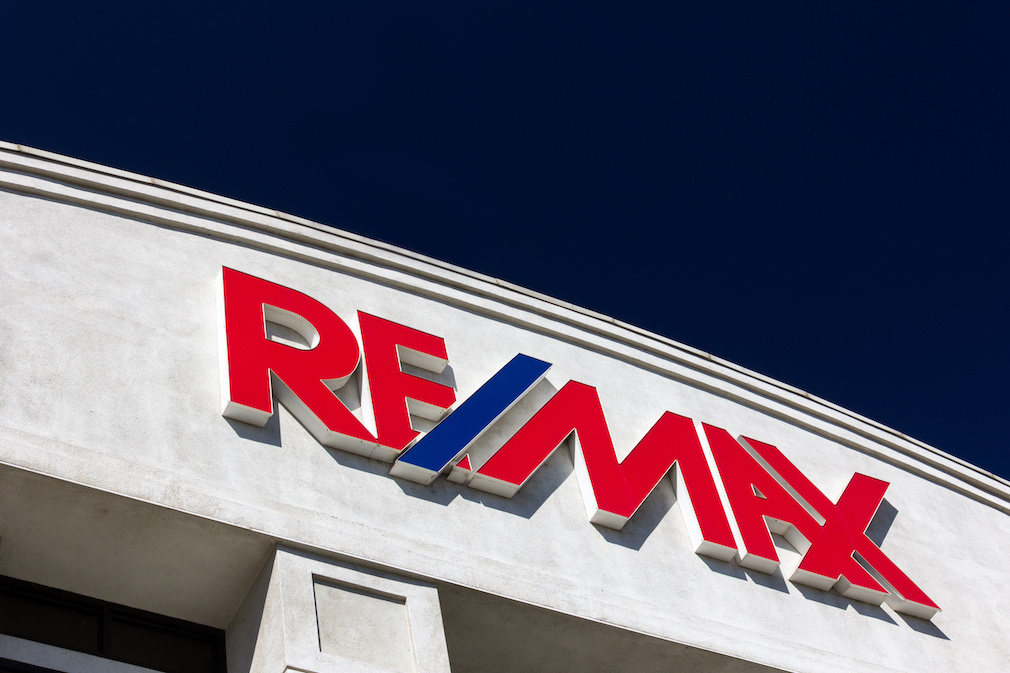Is a business model change coming for RE/MAX? The possibility was floated on the company’s second-quarter 2024 earnings call Friday morning, as the brokerage’s sinking agent count continues to suppress revenue in what’s already a difficult housing market for real estate companies.
RE/MAX has operated on a flat-fee business model since its inception, but a company website suggests there are options for agents who wish to take commission splits.
When asked if RE/MAX has considered changing its model to “take more of the economics on the actual transaction,” CEO Erik Carlson said the company is “not trying to leave any stone unturned.”
“We’re not naive enough to think that we might not have to change,” he said. “We’re looking at all aspects of the business, whether that’s a wholesale change of the model or a hybrid in the future.”
Investors are apparently bullish on this possibility, as shares of the company are up today. In addition, the company tallied net income of $3.7 million from April to June, which is largely attributable to a 13.3% year-over-year decrease in operating expenses related to lower sales, operating and administrative costs.
RE/MAX’s agent count dropped 0.7% year over year to 143,542, although that’s up from 143,287 in the first quarter of 2024. Much of that comes from a 6.3% decline in the number of agents in the U.S., which was partially offset by a 4.2% increase in agent count in countries outside of the U.S. and Canada.
The company’s agent count began to fall prior to the COVID-19 pandemic as a result of increasing competition in the low-cost brokerage space. The year-over-year decline in agents resulted in a 4.8% drop in revenue compared to the same period last year, landing at $78.5 million.
Motto Mortgage, RE/MAX’s national mortgage brokerage franchise brand launched in 2016, saw a 2.6% uptick in franchises over the past year. The company said about 50% of franchise sales came from RE/MAX affiliates; 20% from independent or competitor brokerages and teams; 20% from investors; and 10% from loan originators.
RE/MAX expects its agent count to stay roughly flat for the full fiscal year, and it estimates full-year revenue to be between $305 million and $315 million.
RE/MAX remains in a holding pattern in regard to its settlement of the Batton homebuyer commission lawsuit, a settlement that is not covered under the National Association of Realtors‘ settlement because the plaintiffs represent buyers, not sellers.
James Mullis, a homebuyer plaintiff, filed an appeal of the May 9 decision to grant final approval of settlement agreements with RE/MAX and fellow defendants Keller Williams and Anywhere. Under the agreement, RE/MAX agreed to pay $55 million.
The appeal was filed on June 4, and a second appeal was filed by Spring Way Center, the original home seller plaintiff in the copycat commission lawsuit filed in Pennsylvania in December.






“RE/MAX has operated on a flat-fee business model since its inception, but a company website suggests there are options for agents who wish to take commission splits.”
I’m not sure what your source of information is but RE/MAX has never been a flat fee business model, although some offices may follow that path. In the beginning, RE/MAX was a 100% commission company with agents paying a pro-rated share of office expenses monthly in order to receive 100% of any commissions earned as developed earlier by Realty Executives.
Dave Liniger once worked for Dale Rector at Realty Executives in Phoenix, Arizona. Rector sent Liniger to Denver to open a Realty Executives office but somewhere along the way Liniger made a new decision and RE/MAX was the result.
RE/MAX was originally a 100% commission shop just like Realty Executives but somewhere along the way, the 100% shrunk to 95% where it is today. Most RE/MAX shops have an additional office bill in addition to the 5% they deduct from each commission.
I once worked at a Realty Executives office until I moved to a new city where there wasn’t one and RE/MAX was the next closest alternative. I have had the opportunity in the past to meet and talk with both Dale Rector, his son Rich, and also Dave and Gail Liniger.
Respectfully, the author is confused and is conflating how RE/MAX LLC gets paid with how agents and franchises get paid. The “company website” example he sites is a RE/MAX franchise and these are the options this particular franchise offers its agents and prospective agents. Because he is confused, much of the information in the article is incorrect.